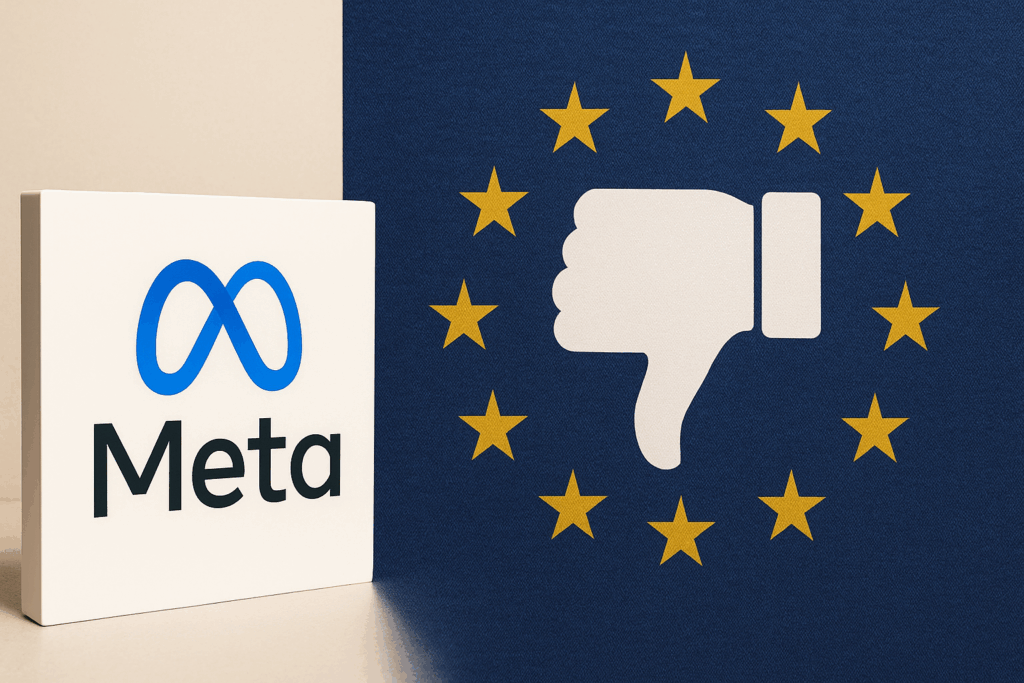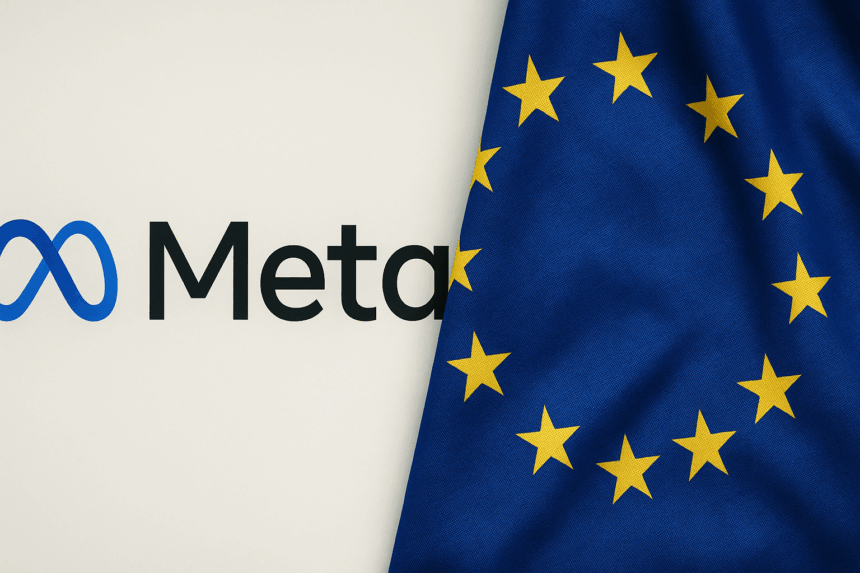Meta has openly rejected the European Union’s AI Code of Practice for General Purpose AI (GPAI). Joel Kaplan, Meta’s Chief Global Affairs Officer, says the EU is “heading down the wrong path on AI.” The voluntary Code covers transparency, copyright, and security rules for advanced AI models. Meta argues that it introduces legal uncertainties and exceeds the scope of the EU’s AI Act. This refusal is the latest sign of tension between big tech and European regulators over AI governance.
What’s Happening & Why This Matters
Meta’s Opposition to the EU AI Code

Meta’s refusal to sign the EU’s Code of Practice marks a clear break with European ambitions to tightly regulate AI development. Joel Kaplan explains that the Code risks throttling innovation by adding unclear legal hurdles for AI developers. He warns that it could stunt European startups that build on AI technologies. The Code requires firms disclose their AI tools’ capabilities and respect copyright protections for content used in AI training.
The AI Act itself, which the Code supports, takes effect on 02 August for GPAI systems. However, the full Act will not apply for another two years. Signing the Code grants companies more legal clarity, but refusing to sign invites more regulatory scrutiny and inspections. Meta’s stance represents the distinct difficulties regulation encounters with innovation — especially at AI’s breakneck pace.
Innovators’ Criticisms
Meta is not alone in raising concerns. Several major European companies, including Airbus and Siemens Energy, have petitioned EU leaders to delay the AI Act implementation by two years. These firms want more time to adjust to complex regulations that they believe hinder their competitiveness. Even Meta CEO Mark Zuckerberg has voiced his frustration with EU regulators. He likened EU fines to tariffs on American businesses and expressed hope the U.S. government would protect U.S. firms in Europe.
The Regulatory Stakes
The AI Act threatens steep financial penalties for non-compliance. Companies face fines up to €35 million or 7% of global turnover for severe breaches. The EU has already fined Meta hundreds of millions over antitrust cases. This high-stakes environment fuels Meta’s rejection of the Code. By refusing to sign, Meta wants clearer, more business-friendly AI rules.

The EU expects to finalize the Code’s signatories list by 01 August. Countries within the EU, represented in the AI Board subgroup, and the Commission’s AI Office must approve the Code. The regulatory environment is tense as AI’s importance in business and society grows.
TF Summary: What’s Next
Meta’s rejection of the EU’s AI Code challenges the European regulatory approach. The standoff is another sticking point between AI innovation and regulation. With strict penalties looming, firms face tough choices about compliance. The EU’s subsequent decisions establish how AI matures on the continent and how global innovation companies engage with European rules.
The EU will soon publish final guidance on AI compliance. Its goal is to support companies navigating complex rules. Meanwhile, Meta and others are expected to push back. Yet, how many may accept or seek compromise solutions? The world watches as Europe tries to balance safety, innovation, and competitiveness in AI.
— Text-to-Speech (TTS) provided by gspeech


